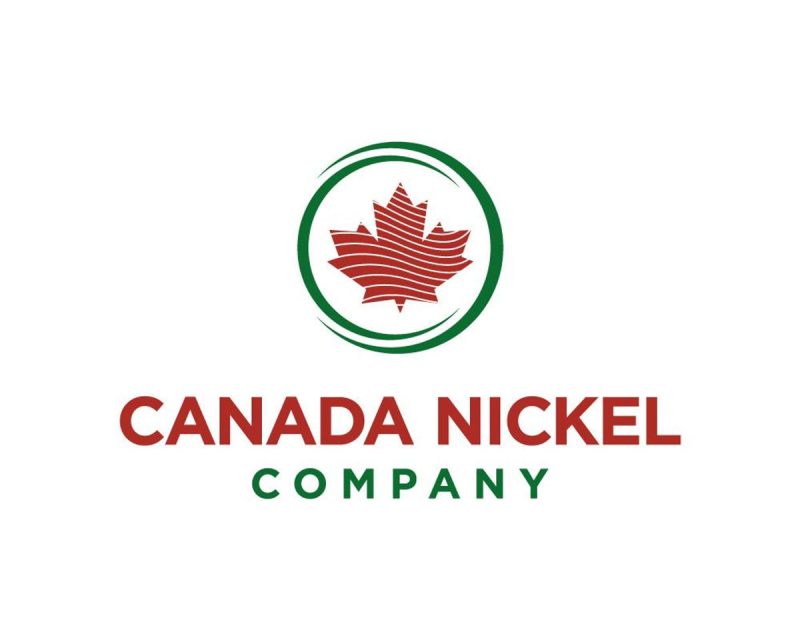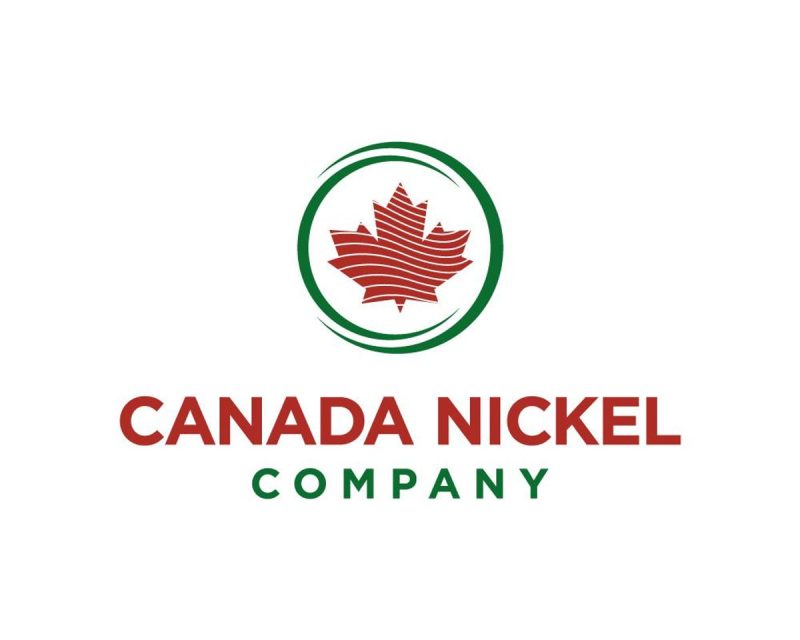
Overview
Canada Nickel Company (TSXV:CNC) is a potential leader in next-generation, large-scale nickel supply and one of the few suppliers outside of Indonesia and China.
Nickel demand has very sound growth prospects led by its applications in batteries for EVs and stainless steel, and other uses. Global nickel demand has grown at an annual pace of 9 to 10 percent in the first three years of this decade and is expected to continue to maintain that pace going forward, according to the International Nickel Study Group. Canada Nickel has its forecast and expects demand to double by 2030 to more than 5 Mt and potentially upwards of 6 Mt. The bulk of this growth is expected to come from the EV sector.
The nickel supply dynamics contain significant political risks. Just three countries – Indonesia, Philippines and Russia – control over 67 percent of the overall supply, with Indonesia alone accounting for nearly 50 percent. This concentration of supply is risky and any resource outside these three countries will be regarded as highly valuable.
The other issue with the current supply is its high carbon footprint, and the nickel produced is typically termed as “dirty nickel.” Indonesian supply carries a massive carbon footprint, generating 60 to 90 tons of CO2 per ton of nickel produced. Furthermore, integrated Chinese supply chains are unfavorable given the geopolitical tensions between China and many countries.
Against this backdrop, Canada Nickel offers the potential for large-scale nickel supply outside of Indonesia and China, with the potential for zero carbon production. The company operates in a substantial new nickel district in the established Timmins mining camp in Ontario, led by its flagship Crawford nickel sulfide project.
The Crawford project has the world’s second-largest nickel reserve. With a mine life of 41 years, the project offers an after-tax NPV of US$2.5 billion and an IRR of 17.1 percent. Factoring in carbon capture and store credits will increase the after-tax NPV to US$2.6 billion and IRR to 18.3 percent. Based on the bankable feasibility study, Crawford is expected to be a low-cost producer with first quartile net C1 cash cost of US$0.39/lb, and net all-in-sustaining costs of US$1.54/lb. The economics suggest a highly profitable mine with an annual EBITDA of US$667 million and annual free cash flow (FCF) of US$431 million over the life of the mine.
The project is expected to be environmentally friendly with a net negative contribution to the global CO2 footprint. Further, Canada Nickel has developed a novel method for accelerated carbon capture and storage called, in-process tailings (IPT) carbonation. The ability to capture and store carbon will make Canada Nickel eligible for carbon credits (current rate at C$25/t) which will provide significant additional revenue on top of the nickel revenue.
Canada Nickel expects to receive the final permits for the Crawford project by mid-2025, after which the decision for construction will be taken. The project is anticipated to start production by the end of 2027.
Besides the Crawford project, Canada Nickel also owns or holds the option to own 25 additional targets in the Timmins region, all within proximity of the Crawford project. Eleven of these targets have similar mineralization to Crawford and have a larger footprint. Thus, Canada Nickel aims to unlock a district-scale nickel camp in the Timmins region.
The potential of the region is further endorsed by several investments from mining majors and other global companies. Samsung SDI announced an investment of US$18.5 million by buying 15.6 million shares at C$1.57/share. Following this, Samsung SDI now owns approximately 8.7 percent of Canada Nickel shares on a non-diluted basis.
Samsung SDI’s investment follows Agnico Eagle’s investment in early January 2024, whereby it purchased a 12 percent stake in Canada Nickel. Anglo American, a major global miner, also invested C$24 million in Canada Nickel for a 9.9 percent interest. We believe these investments underscore confidence in the potential of Crawford.
Canada Nickel also recently announced that it intends to develop Downstream Nickel and Stainless Steel Facilities in Timmins Region under a wholly owned subsidiary, NetZero Metals. This is expected to be the largest nickel processing facility in North America and largest stainless-steel and alloy production facility in Canada to fill a key gap in the North American electric vehicle supply chain – utilizing proven, low environmental footprint technology.
Each production facility is expected to use Canada Nickel’s carbon storage capacity at its Crawford Nickel project to deliver zero carbon nickel and stainless steel and alloy production. The Company is currently at the site-selection stage, considering several sites in the region. The Company is also in the process of choosing engineering firms to complete the design of both facilities and expects to announce the selected firms shortly. Feasibility studies are underway and expected to be completed by year-end, with the nickel processing plant expected to begin production by 2027.
Mike Cox, will lead NetZero metals and has assembled a global experienced team. Mike has 35 years of nickel processing experience and senior leadership positions with Inco Ltd. and Vale SA overseeing a global portfolio of nickel refineries.
The funding for each project expected to come from various government programs (Federal/provincial/DOD) and potential partners (multiple discussions underway).
Company Highlights
Canada Nickel Company is focused on delivering large-scale nickel supply via its flagship property, the 100 percent owned Crawford Nickel Sulphide project in Timmins, Ontario. The presence in the prolific Timmins mining camp with access to excellent infrastructure and proximity to other producing mines is a positive.Nickel demand prospects are very bright, driven by the increasing demand for batteries needed for electric vehicles. The nickel market is expected to remain in a shortfall in the medium to long term with little supply outside of Indonesia and China.The Crawford project has the potential to produce net-zero carbon nickel. A large and zero carbon production source of supply away from Indonesia and China makes it very attractive.Several established companies have large ownership in the company. Agnico Eagle holds a 11 percent stake, Samsung SDI holds 8.7 percent and Anglo American maintains 7.6 percent ownership. Such significant investment by major global companies increases confidence in the potential of the company’s assets.
Key Project
Crawford Nickel-Sulphide Project
The Crawford project is the company’s flagship nickel project. The project is 100 percent owned by the company and located in the Timmins Nickel District, adjacent to major infrastructure.
The project benefits from excellent infrastructure that includes roads and railways, electricity, and the availability of water. The region has a rich mining history, and the project is adjacent to producing mines and benefits from a significantly skilled workforce.
The bankable feasibility study (BFS) for the project was completed in October 2023. At 3.8 Mt of contained nickel (nickel grade at 0.22 percent), the project ranks second globally in terms of reserves. Based on the study results, the project is expected to be the third largest nickel sulfide operation worldwide. Moreover, the project has potential to be a low-cost producer and falls in the first quartile of the cost curve. The project is also expected to have a significantly low carbon footprint, potentially generating 2.3 tons of CO2 per ton of nickel equivalent production, which is 89 percent lower than the industry average.
The Crawford BFS highlights robust economics for the project. The after-tax NPV stands at US$2.5 billion, implying an after-tax IRR of 17.1 percent. The project has a long mine life of 41 years with an initial capex pegged at US$1.9 billion. The resource is estimated at 1.6 Mt of nickel, 58 Mt of iron, and 2.8 Mt of chrome over the project life, and peak nickel production is estimated at 48,000 tons per annum. The cost of production is significantly low, with a life-of-mine average net C1 cash cost of US$0.39/lb. The project is expected to be highly profitable with an average annual EBITDA of US$667 million and a free cash flow of US$431 million over the life of mine.
Crawford contains the world’s 2nd largest nickel reserves
The project has completed the first phase of federal permitting and is less than 18 months away from receipt of final permits and the construction decision.
The key planned milestones are:
2024: Filing of environmental impact statement by mid-2024 and financing arrangement (debt/equity packages) by year-end 2024.2025: Receipt of final permits and construction decision by mid-20252026: Construction of the project2027: First production by year-end
2024 Catalysts are:
Continued Systematic District Exploration & Resource Definition Environmental Impact Statement First Nations Definitive Agreements Crawford Funding Package (Offtake, Equity, Debt)
Once in production, Crawford is expected to host one of Canada’s largest carbon storage facilities and will be a net negative contributor of CO2. The carbon storage facility has significant potential to generate additional carbon credit revenues on top of the nickel production revenues.
Management Team
Mark Selby – CEO
Mark Selby holds a Bachelor of Commerce (Honors) from Queen’s University. Previously, he was the CEO of RNC Minerals, which successfully raised over $100 million. He has held senior leadership roles at Quadra Mining, Inco, Purolator Courier, and Mercer Management Consulting. He has also served on the boards of several junior mining companies.
Wendy Kaufman – CFO
Wendy Kaufman holds a BBA from Wilfrid Laurier University and is a chartered professional accountant (CPA, CA). She has over 25 years of rich experience with several junior and mid-tier mining companies in various domains. She has served as CFO and held other senior roles at Khiron Life Sciences, Pasinex Resources, Primero Mining, and Inmet Mining.
Steve Balch – VP Exploration
Steve Balch is an Ontario-registered geoscientist. He has over three decades of experience in geophysics and large exploration compilations. Earlier, he worked with Inco in the Sudbury Basin and at Voisey’s Bay and Aeroquest. He is also the founder of Triumph Instruments and was instrumental in developing the AirTEM system. He has also been active in borehole geophysics and developed several novel technologies.
Pierre-Philippe Dupont – VP Sustainability
Pierre-Philippe Dupont holds an MSc from Laval University and has over 15 years of experience in acquiring environmental, community stakeholder, and First Nation approvals for mining projects. Previously, he worked with RNC Minerals and Glencore, and was involved in the permitting process for major resource projects such as the Canadian Malartic Gold Mine and the Canadian Royalties Nickel Mine.
Desmond Tranquilla – VP Projects
Desmond Tranquilla has over three decades of experience supporting major capital projects in mining and major greenfield and brownfield infrastructure projects. He has held several management and leadership roles on behalf of asset managers, mining companies and major engineering firms. Before joining the company, he served as director of construction at SNC-Lavalin North America and delivered several projects.
Chris Chang – VP of Corporate Development
Chris Chang holds a BBA from Schulich School of Business at York University. He has over 17 years of experience in capital markets and investment banking. He previously worked with Macquarie Capital Markets, Raymond James and Laurentian Bank Securities.
John Leddy – Senior Advisor Legal & Strategic Matters
John Leddy has over two decades of experience as a business lawyer and in private equity. Previously, he also worked as a partner at Osler and is a member of the Law Society of Upper Canada.
Adam Schatzker – VP Corporate Development
Adam Schatzkar is focused on unlocking the value of the IPT Carbonation process and the potential for a zero carbon industrial cluster in the Timmins-Cochrane region. He has three decades of experience focused on mining. He has worked in equity research and investment banking roles at RBC Capital Markets. He was also associated with Uranium One, the fourth-largest uranium producer.
David Smith – Chairman
David Smith holds a B.Sc. from Queen’s University and an M.Sc. in mining engineering from Arizona University. Previously, he served as the CFO at Agnico Eagle Mines. He has held a variety of mining engineering positions in Canada and abroad and is a former director of Three Valley Copper and eCobalt Solutions.
Francisca Quinn – Director
Francisca Quinn holds an M.Sc. in economics and an MBA from the Stockholm School of Economics. She is the co-founder and president of Quinn & Partners, an advisory firm focused on sustainability in business and capital markets. She has over 25 years of corporate strategy experience, having worked with Oliver Wyman. She has also been associated with Carbon Trust and WSP.
Jennifer Morais – Director
Jennifer Morais holds a BCom and MBA from the University of Toronto and is a chartered financial advisor (CFA) charter holder and a member of the Toronto CFA Society. She has over two decades of experience as a senior executive in the global private equity, alternatives industry, global mining finance, and management consulting fields. She is currently co-founder and managing partner of Acuity Partners and has previously worked with TPG Capital, CPPIB, OMERS, Hatch and CIBC.
Mike Cox – Director
Mike Cox holds a BSc (Hons) in chemistry and an MBA, both from the University of Glamorgan. He has over three decades of experience and has held several senior roles at Inco and Vale. He is now a partner at CoDa Associates, which provides advisory services to the corporate and public sectors.
Kulvir Singh Gill – Director
Kulvir Gill holds a B.Sc. and a B. Comm. from the University of Calgary and the ICD.D designation from the Institute of Corporate Directors. He has over two decades of experience working on innovation and sustainability within the global mining industry. He works with the strategy firm Clareo for international Fortune 500 clients across multiple sectors and was the founding executive director of the Development Partner Institute.
This article was written in collaboration with Couloir Capital.

